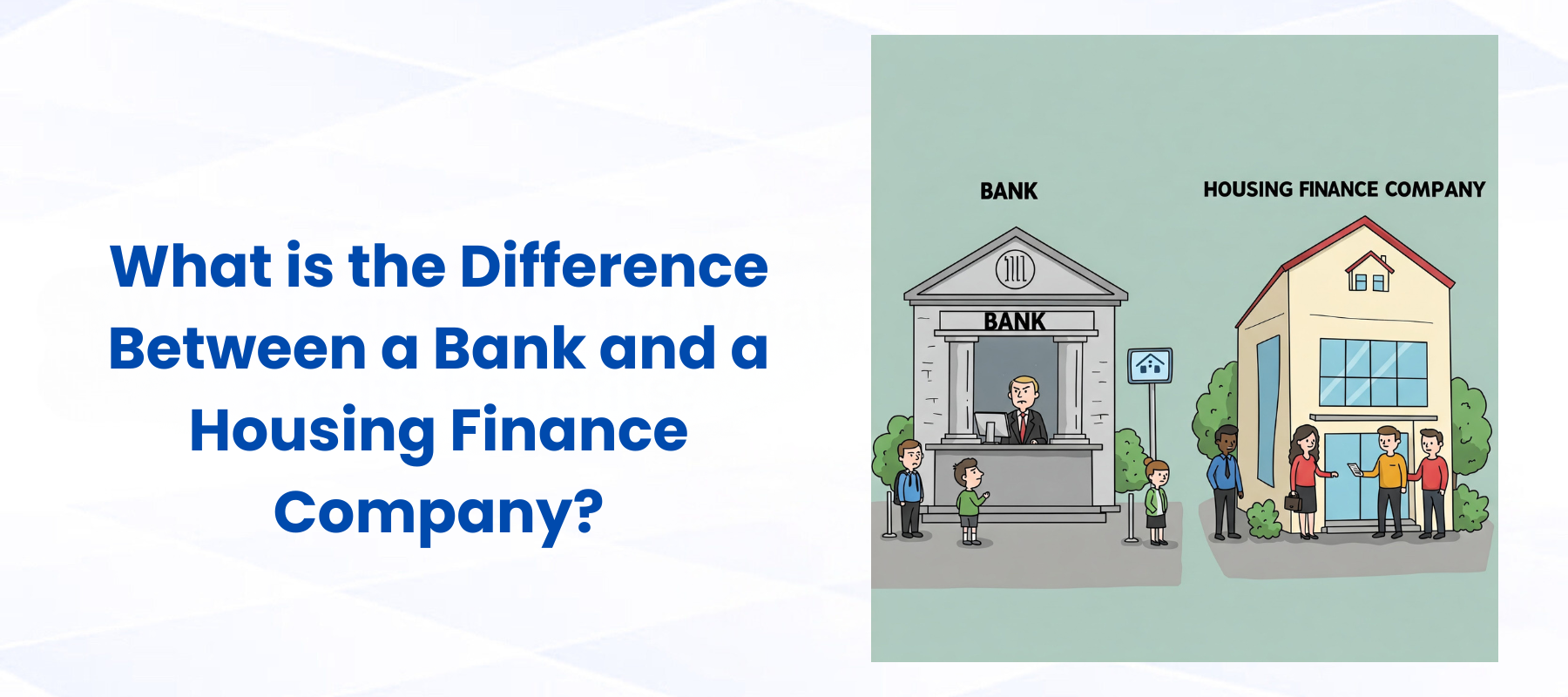Special Offers




Special Offers




08-May-2025 | Affordable Housing

When looking for a home loan, borrowers often come across two main types of institutions: Banks and Housing Finance Companies (HFCs). While both offer home loans, their operations, regulations, and services vary significantly. Understanding these differences can help you make an informed decision about which lender is best suited for your financial goals. Aavas Financiers Ltd., one of India’s leading housing finance companies, is here to help you explore the key distinctions between banks and HFCs.
Banks are financial institutions regulated by the Reserve Bank of India (RBI). They offer a wide range of financial services, including savings accounts, fixed deposits, loans, and investments.
● Regulations: Governed under the Banking Regulation Act, 1949.
● Loan Options: Banks cater to multiple types of loans beyond housing loans, such as personal loans, education loans, and vehicle loans.
HFCs are specialized financial institutions that primarily focus on providing housing finance. They are regulated by the National Housing Bank (NHB) and now also by the RBI.
● Specialization: Dedicated to home loans, home improvement loans, and related financial products.
● Customer Base: Typically cater to individuals who may face challenges qualifying for bank loans.
Wide Range of Services: From savings accounts to mutual funds, banks offer a broad portfolio of financial products.
Competitive Interest Rates: Repo rate-linked loans often lead to competitive interest rates, especially in a falling interest rate scenario.
Brand Reliability: Banks often have a strong reputation and customer trust due to their long-standing presence.
Flexible Eligibility: HFCs cater to a wider range of customers, including those with irregular income or lower credit scores.
Tailored Loan Products: Specialized in housing loans, offering products like home improvement and top-up loans.
Faster Processing: Quick loan approval and disbursement, making them ideal for time-sensitive purchases.
Customer-Friendly Approach: Simplified processes and personalized assistance for first-time buyers.
Banks are suitable for:
● Individuals with strong credit profiles and stable incomes.
● Borrowers who prioritize competitive interest rates and brand trust.
● Those seeking diverse financial products under one roof.
HFCs are ideal for:
● Self-employed individuals or those with irregular income sources.
● First-time buyers looking for personalized guidance.
● Borrowers seeking flexible eligibility criteria and quick loan processing.
Aavas Tip: Aavas Financiers specializes in serving customers who may not meet the rigid criteria of traditional banks, ensuring access to affordable housing finance for all.
Scenario:
● Borrower A: A salaried individual with a high credit score may opt for a bank loan for lower interest rates.
● Borrower B: A self-employed individual with informal income sources might prefer an HFC for its flexibility and understanding of unique financial circumstances.
As one of the leading housing finance companies, Aavas Financiers offers:
Competitive Interest Rates: Transparent pricing aligned with market trends.
Flexible Eligibility Criteria: Accommodating customers from diverse income backgrounds.
Customized Products: Tailored solutions like home improvement loans, top-up loans, and more.
Fast Approvals: Simplified processes for quicker disbursements.
Both banks and housing finance companies have their unique advantages. Your choice depends on your financial profile, loan requirements, and priorities. While banks offer lower interest rates and comprehensive services, HFCs like Aavas Financiers stand out with their customer-friendly approach, flexibility, and faster processing. Explore your options with Aavas Financiers today and take the first step toward your dream home!